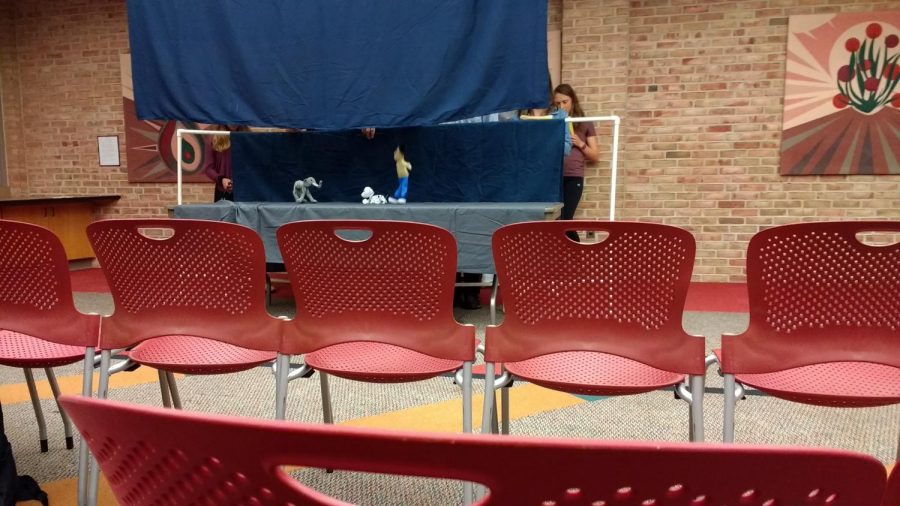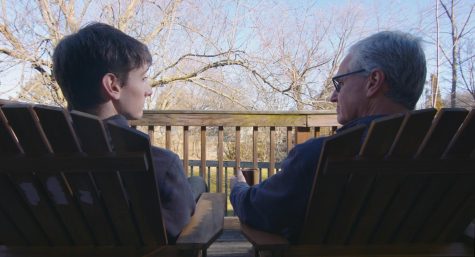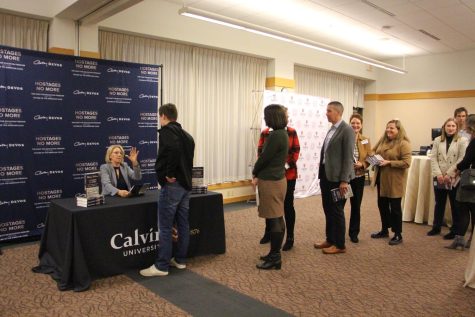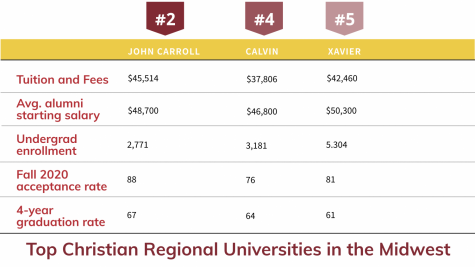German students perform interactive theater
German 362 students performed a puppet show and other skits in German instead of a traditional unit test. Photo by Peter Ford.
In place of a unit test, the students in professor Corey Roberts’ German 362 class presented “Theaterabend.” The theaterabend, which is German for “theater evening,” included skits, nursery rhymes and even a puppet show in German.
German 362, titled Culture & Language in Performed Texts, fulfills the rhetoric in culture requirement of the core curriculum. It is listed in the course catalog as “an introduction to different eras and cultural themes of German-speaking Europe through the reading, interpretation and presentation of a variety of texts.”
The students’ performance was opened up to members of the Calvin community, and especially targeted at 100- and 200-level German students. The entire event was held in German, including the introduction by Roberts.
In one of the sketches, cast members played a guessing game that involved describing a literary character and asking the audience “Wer bin ich?” (“Who am I?”) Jack Sparrow and Legolas were two of the characters audience members guessed.
Other acts involved audience participation in other ways. In one, the audience was asked to read some familiar rhymes from a handout, including “The Itsy Bitsy Spider” (in German as “Imse Winse Spinne”).
German 362 was first created as part of a 2010 curriculum update and has been offered in alternating years since then.
This is the first time Roberts has taught the course. Since the course counts for the rhetoric in culture core, Roberts said that performance is one required aspect.
Sophomore John Hammer was among the troupe of performers.
“Personally, I didn’t mind the change but I can see how it might be more stressful than normal for some,” he said.
“When you do a class like that, people are sometimes out of their element,” said Roberts. “But then I think what you also see is that people really come into their element” when they realize they can act or perform.
Rachel Greydanus, a student in the German 121 class, attended the performance to receive cultural exploration points for her class. One of the performers is the leader of the German conversation group that Greydanus is part of for her class.
“I don’t know much German at this point, so when they were just talking, I had no idea what was going on, but the acting was really interesting.”
Roberts mentioned a simple counting rhyme as one challenge the group faced. He asked them to present it in a way that even first-year German students could understand.
“There were beginning German students there, too, so they didn’t necessarily get everything that was going on. But what’s nice about that kind of presentational mode is they can think about what to do to make this comprehensible.”
Roberts said his students found some innovative ways to present the material. Hammer especially enjoyed performing in the marionette puppet theater.
“It was an interesting challenge to convey emotion through a puppet with a fixed expression.”
“I think using this performance as a test is a super cool idea.” Greydanus said. “It seemed like the performers were having fun the whole time.”






